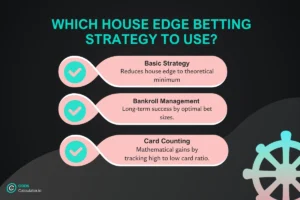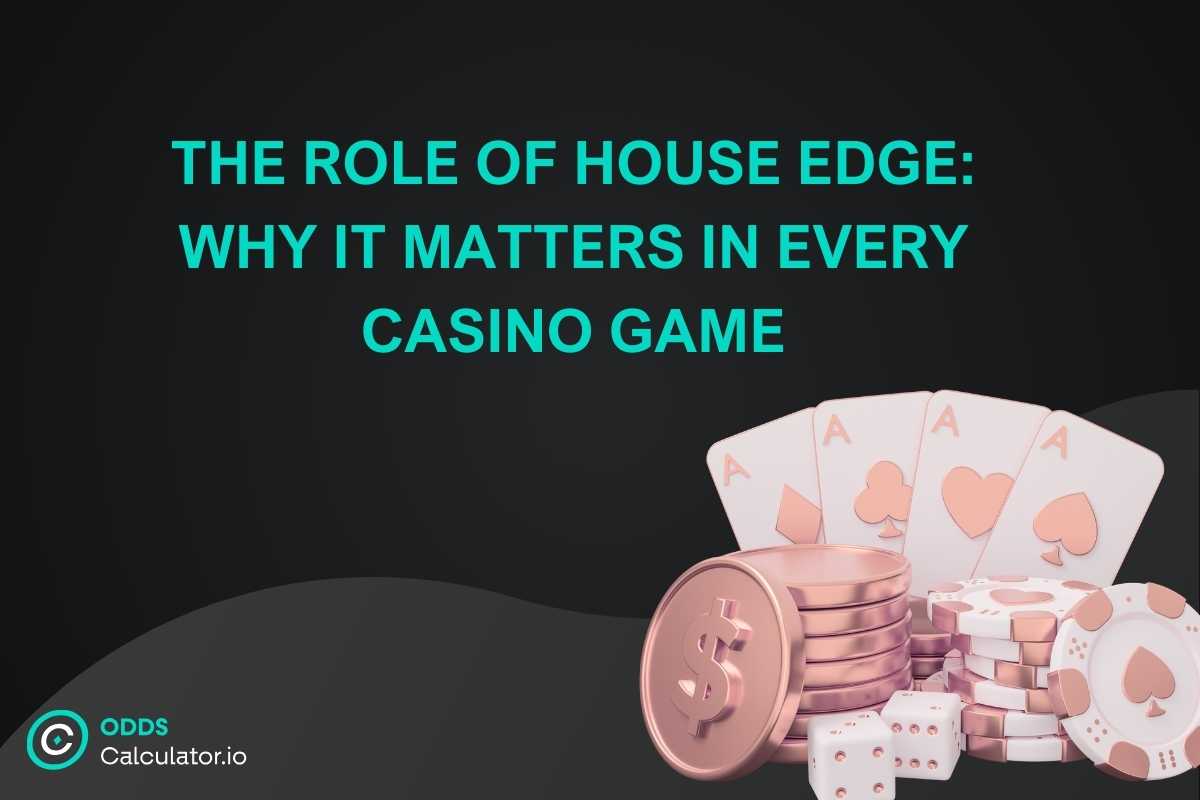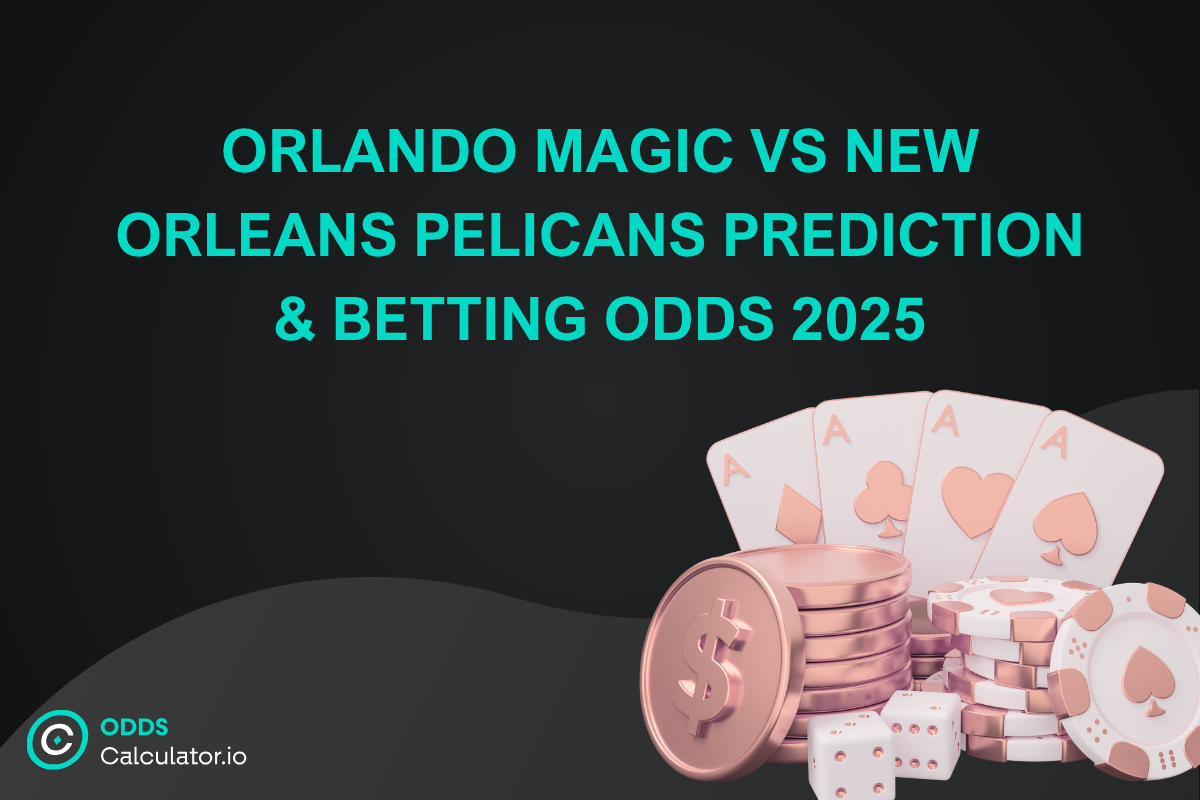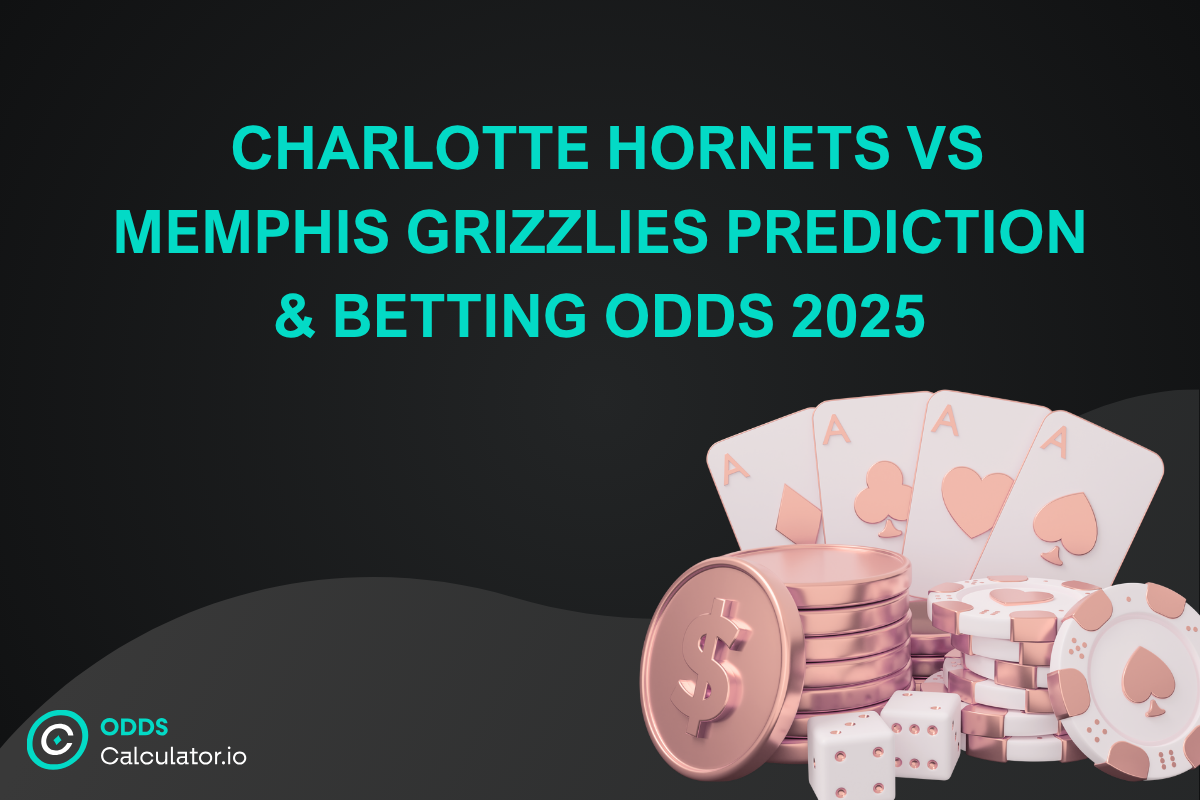Understanding house edge is crucial for anyone serious about casino gaming. Whether you’re calculating odds for your next bet or developing a long-term gambling strategy, knowing how casinos maintain their advantage can transform your approach to gaming. This comprehensive guide explores everything from basic house edge concepts to advanced betting strategies that can help minimise your losses and maximise your entertainment value.
What Is House Edge and Why Does It Matter?
House edge represents the mathematical advantage that casinos hold over players in any given game. Simply put, it’s the percentage of each bet that the casino expects to keep over time. House edge is “defined as the ratio of the average loss to the initial bet.”
For example, if a game has a 2% house edge, the casino expects to retain £2 from every £100 wagered over the long term. This doesn’t mean you’ll lose exactly £2 on every £100 bet – variance ensures that individual sessions can vary dramatically. However, over thousands of bets, the mathematics inevitably favour the house.
The Mathematics Behind Casino Advantage
The house edge exists because casinos pay out winnings at odds that are slightly lower than the true mathematical probability of an event occurring. Consider a simple coin flip: the true odds are 50/50, but a casino might pay out at 49/51 odds, creating their edge.
This mathematical principle applies across all casino games, from the simplest slot machines to complex table games. The key difference lies in the size of the edge and how it’s implemented.
House Edge Across Popular Casino Games
Different casino games offer varying house edges, making some significantly more favourable to players than others. Understanding these differences is essential for making informed betting decisions.
Blackjack: The Player’s Best Friend
Blackjack consistently offers some of the lowest house edges in the casino. With optimal basic strategy, players can reduce the house edge to as low as 0.28% under liberal Las Vegas rules. This makes blackjack particularly attractive for serious gamblers who invest time in learning proper strategy.
The house edge in blackjack varies significantly based on the specific rules:
- Liberal Vegas Strip rules: 0.28%
- Standard rules with dealer hitting soft 17: 0.5-0.6%
- Poor rules with restrictions on doubling and splitting: 1-2%
Craps: True Odds and Smart Betting
Craps offers some of the most interesting betting opportunities in the casino. The pass line bet carries a house edge of just 1.41%, making it one of the better bets available. However, craps becomes even more attractive when you consider odds bets.
According to Vegas Advantage, odds bets in craps have zero house edge – they pay out at true mathematical odds. Some Las Vegas casinos offer up to 20x odds, allowing skilled players to significantly reduce the overall house edge on their combined bets.
The key craps bets and their house edges include:
- Pass/Don’t Pass: 1.41%/1.36%
- Odds bets: 0%
- Field bets: 2.78%-5.56% depending on payouts
- Proposition bets: 9%-16.67%
Roulette: European vs American Wheels
Roulette house edges vary dramatically depending on the wheel type and betting rules. European roulette offers a 2.70% house edge, while American roulette increases this to 5.26% due to the additional double-zero pocket.
French roulette rules can reduce the house edge further to just 1.35% on even-money bets, thanks to the “en prison” or “la partage” rules that return half the bet when the ball lands on zero.
Baccarat: Simple and Favourable
Baccarat offers straightforward betting with relatively low house edges:
- Banker bet: 1.06% (after 5% commission)
- Player bet: 1.24%
- Tie bet: 14.36% (avoid this bet)
The simplicity of baccarat, combined with its low house edge, makes it popular among both casual players and high rollers.
Advanced Betting Strategies and Player Advantage

While the house edge ensures casinos profit over time, skilled players can employ various strategies to minimise their disadvantage and, in some cases, gain a temporary edge.
Basic Playing Strategy: The Foundation
Every casino game with an element of skill has an optimal basic strategy. In blackjack, this means knowing when to hit, stand, double down, or split based on your cards and the dealer’s upcard. Following basic strategy can reduce the house edge to its theoretical minimum.
For games like video poker, optimal play is crucial. Full-pay Jacks or Better video poker offers a 99.54% return to player (0.46% house edge) when played perfectly, but poor play can increase the house edge significantly.
Bankroll Management and Betting Systems
Effective bankroll management is crucial for long-term success. The Kelly Criterion provides a mathematical framework for determining optimal bet sizes based on your edge and bankroll.
Popular betting systems include:
- Martingale System: Double your bet after each loss
- D’Alembert System: Increase bets by one unit after losses
- Paroli System: Double bets after wins
However, it’s important to understand that no betting system can overcome the house edge in negative expectation games. These systems can help manage variance but cannot guarantee profits.
Card Counting and Advantage Play
In blackjack, skilled card counters can gain a mathematical advantage over the casino. By tracking the ratio of high to low cards remaining in the deck, counters can identify situations where the odds favour the player and increase their bets accordingly.
Professional advantage players also look for:
- Biased roulette wheels
- Dealer tells in poker-based games
- Promotional offers with positive expected value
- Comps and rewards that exceed the expected losses
The Psychology of House Edge: Why Players Keep Playing
Despite the mathematical certainty of the house edge, millions of people continue to gamble regularly. Understanding the psychological factors at play helps explain this apparent contradiction.
The Gambler’s Fallacy and Hot Streaks
Many players fall victim to the gambler’s fallacy – the belief that past results affect future outcomes in independent events. After a series of losses, players often increase their bets, believing they’re “due” for a win.
Conversely, winning streaks can create the illusion that a player has found a system or is particularly skilled, leading to overconfidence and larger bets.
Entertainment Value vs Expected Loss
For many players, gambling provides entertainment value that justifies the expected loss. A night at the casino might cost £100 in expected losses but provide hours of excitement and social interaction – similar to the cost of other entertainment options.
The Role of Variance
Short-term variance can mask the house edge, creating memorable winning sessions that overshadow the more frequent smaller losses. This selective memory reinforces gambling behaviour despite the negative expected value.
Optimal Betting Strategies for Different Games
Blackjack Strategy
Master basic strategy charts for your specific game rules. Key principles include:
- Always split Aces and 8s
- Never split 10s or 5s
- Double down on 11 against dealer 2-10
- Stand on hard 17 or higher
Craps Strategy
Focus on low house edge bets:
- Make pass line or don’t pass bets
- Take or lay full odds when available
- Avoid proposition bets in the centre of the table
- Consider come/don’t come bets for additional action
Roulette Strategy
Choose European or French wheels when available, and focus on even-money bets for the lowest house edge. Avoid betting systems that promise to overcome the house edge – they don’t work in the long term.
Baccarat Strategy
Stick to banker or player bets, avoiding the tie bet entirely. The banker bet offers slightly better odds despite the 5% commission on wins.
The Future of House Edge and Casino Gaming
Technology continues to reshape the gambling landscape, potentially affecting how house edge operates:
Live Dealer Games
Live dealer games combine the convenience of online play with the authenticity of land-based casinos. These games typically offer the same house edges as their physical counterparts while providing additional transparency.
Cryptocurrency Gambling
Some cryptocurrency casinos offer “provably fair” games where players can verify the randomness of each outcome. This transparency doesn’t change the house edge but provides additional confidence in game integrity.
Skill-Based Gaming
New skill-based casino games are emerging that allow player skill to influence outcomes more significantly than traditional games. These games may offer opportunities for skilled players to reduce or eliminate the house edge.
Understanding house edge empowers you to make informed decisions about your gambling activities. While the mathematics ensure that casinos maintain their advantage over time, knowledgeable players can minimise their losses, maximise their entertainment value, and occasionally find opportunities where skill can overcome the odds.





